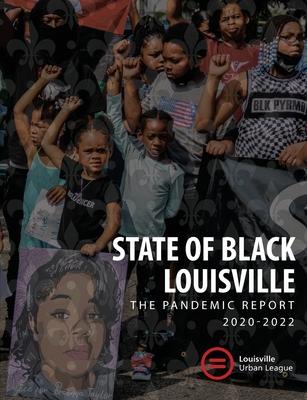The State of Black Louisville report is a collection of essays from engaged community members around Louisville, Kentucky. The report depicts how African Americans in Louisville are doing. The report is packed with data, reflective commentary, and insightful analysis from leading figures and field experts. The State of Black Louisville is a road-map to address longstanding inequities and, more importantly, to pave the way for greater progress. This year's State of Black Louisville is a project in recovery and revisioning. We have recovered the essays the pandemic prevented us from publishing in 2020. We have also joined our community members in revisioning a new Louisville in the wake of pandemic grief and redirection. Still, the more things change, the more things stay the same. After all, the essays in this collection provide commentary on many familiar themes discussed in the 2018 edition: health in west Louisville, fair housing and homeownership, Black fatherhood, youth education, mental health, and the role of the church, just to name a few. This year's theme reflects the justice claims that remain steadfast over the span of 2020-2022; from reparations to social distance.

2022 State of Black Louisville: The Pandemic Report
The State of Black Louisville report is a collection of essays from engaged community members around Louisville, Kentucky. The report depicts how African Americans in Louisville are doing. The report is packed with data, reflective commentary, and insightful analysis from leading figures and field experts. The State of Black Louisville is a road-map to address longstanding inequities and, more importantly, to pave the way for greater progress. This year's State of Black Louisville is a project in recovery and revisioning. We have recovered the essays the pandemic prevented us from publishing in 2020. We have also joined our community members in revisioning a new Louisville in the wake of pandemic grief and redirection. Still, the more things change, the more things stay the same. After all, the essays in this collection provide commentary on many familiar themes discussed in the 2018 edition: health in west Louisville, fair housing and homeownership, Black fatherhood, youth education, mental health, and the role of the church, just to name a few. This year's theme reflects the justice claims that remain steadfast over the span of 2020-2022; from reparations to social distance.